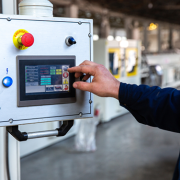Running a small business or managing HR can be challenging, especially when it comes to ensuring that employees are paid accurately and on time. This is where an efficient payroll accounting system comes in handy. Not only does it help manage employee payments, but it also ensures compliance with tax regulations and improves overall employee satisfaction.
- Employee Information and Payroll Data Management
One of the primary functions of any payroll accounting system is to handle employee information and payroll data. This includes storing details such as:
- Names and addresses
- Social Security numbers
- Job titles and departments
- Salary or hourly wage rates
- Benefit deductions
Having all this data housed in one system streamlines the payroll process, making it easier to manage and update as needed. Plus, it ensures that you have a comprehensive record for each employee, which is crucial for both payroll processing and compliance.
2. Tax Calculation and Deductions
Tax calculation can be one of the most complex aspects of payroll accounting. A good system will automatically calculate federal, state, and local taxes based on the latest regulations. It also handles various deductions, including:
- Social Security and Medicare
- Unemployment insurance
- Health and retirement benefits
Automating these calculations reduces the risk of human error and ensures that your business remains compliant with all tax laws.
3. Time and Attendance Tracking Integration
Integrating time and attendance tracking into your payroll system can save a lot of time and reduce errors. This feature allows you to:
- Track employee hours worked
- Monitor overtime
- Manage paid time off (PTO)
- Ensure accurate payroll processing
Integrating these two functions, you can eliminate the need for manual data entry, which often leads to mistakes and discrepancies.
4. Payroll Reporting and Analysis Tools
Reporting and analysis tools are essential for understanding and optimising your payroll processes. They provide insights into various aspects, such as:
- Total payroll costs
- Overtime expenses
- Benefit usage
- Tax liabilities
These tools help you make informed decisions about your payroll and identify areas for cost-saving and process improvements.
Benefits of a Comprehensive Payroll Accounting System
Now that we’ve covered the core components, let’s look at some of the benefits of having a comprehensive payroll accounting system.
Ensuring Compliance with Tax Regulations
Payroll accounting system ensures that your business complies with all relevant tax regulations. This includes automatic tax calculations and updates based on the latest laws, reducing the risk of penalties and fines.
Streamlining Payroll Processes
Automating payroll processes saves time and effort for your HR team. It eliminates the need for manual calculations and data entry, allowing your team to focus on more strategic tasks.
Reducing Errors and Fraud
Automation reduces the risk of human error, ensuring that employees are paid accurately and on time. Additionally, features like audit trails and access controls help prevent fraud and unauthorised changes to payroll data.
Improving Employee Satisfaction
An efficient payroll system ensures that employees are paid correctly and on time, which significantly impacts their overall satisfaction and morale. Happy employees are more likely to stay with your company, reducing turnover and recruitment costs.
Tips for Choosing the Right Payroll Accounting System for Your Business
Selecting the right payroll accounting system can be daunting. Here are some tips to help you make the right choice:
Assessing Your Business Needs
Before choosing a system, assess your business needs. Consider factors like the number of employees, the complexity of your payroll, and any specific features you require.
Considering Scalability and Integration
Choose a system that can grow with your business. It should be scalable and integrate seamlessly with other software you use, such as accounting or HR management systems.
Evaluating User-Friendliness and Support
A user-friendly system is essential for ensuring that your team can use it effectively. Look for systems that offer comprehensive support and training to help your team get up to speed quickly.
Conclusion
Efficient payroll accounting systems are crucial for managing accurate employee payments, ensuring compliance, and improving overall employee satisfaction. By focusing on the core components—employee information management, tax calculations, time and attendance tracking, and reporting tools—you can streamline your payroll processes and reduce errors. When choosing a system, consider your business needs, scalability, and user-friendliness to find the best fit for your organisation.











Comments